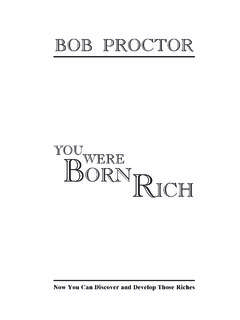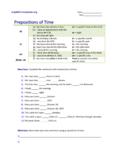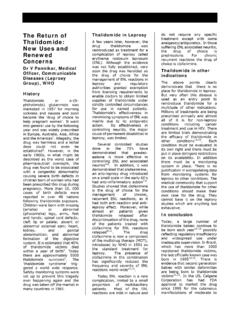Transcription of THE MEANING OF “BORN OF WATER AND THE SPIRIT” IN …
1 DBSJ 4 (Fall 1999): 85 107 THE MEANING OF born OF WATERAND THE spirit IN JOHN 3:5byRobert V. McCabe*he Holy spirit s role in regeneration or the new birth has been thesubject of many theological discussions. A text that has received con-siderable attention is John 3:5, Truly, truly, I say to you, unless one isborn of WATER and the spirit , he cannot enter into the kingdom ofGod. 1 A major interpretative problem with this verse is the MEANING of born of WATER and the spirit (gennhqh/` ejx u{dato" kai; pneuvmato").Is WATER (u{dato") to be equated with baptism? Should WATER be cor-related with procreation? Or, is WATER used as a symbol for the Word ofGod or cleansing?}}
2 Furthermore, what is the relationship between wa-ter (u{dato"), and spirit (pneuvmato")? Is WATER set in contrast to thespirit, or do WATER and spirit reflect a conceptual unity?This article will attempt to determine the MEANING of born of waterand the spirit by examining the immediate context of John 3 and otherpertinent theological data. After this, we will survey some of the moredominant and popular interpretations of WATER and the spirit . AN EXAMINATION OF JOHN 3:5In the history of Christian interpretation, John 3:5 has often beenassociated with Christian Undoubtedly, the sacramentalismassociated with a broad spectrum of Christianity has influenced some tointerpret this verse in light of a sacramental grid.}
3 However, we must de-termine what this verse means in its immediate and overall canonicalcontext. To determine the MEANING of John 3:5, we will initially exam-ine the key concepts within this text, followed by an examination of itsliterary *Dr. McCabe is Professor of Old Testament at Detroit Baptist Theological Semi-nary in Allen Park, Scripture quotations, unless otherwise noted, are taken from the 1977 editionof E. Brown, The Gospel According to John, 2 vols., AB (Garden City, NY:Doubleday, 1966 70), 1 Baptist Seminary JournalAn Examination of Key ConceptsNicodemus is identified in 3:1 as a Pharisee, a ruler of the Jews (a[rcwn tw`n Ioudaivwn).]
4 This identification would suggest that he wasnot simply a community leader, but a Jewish leader and perhaps a mem-ber of the After presenting his discussion of the supernaturalorigination of the new birth, Jesus chides Nicodemus in v. 10 for being the teacher of Israel (oJ didavskalo~ tou` Israhvl), yet unable tocomprehend the subject of Jesus discourse, Are you the teacher of Is-rael, and do not understand these things? Two items are significant inv. 10. First, the teacher of Israel is a title reflecting that Nicodemuswas a recognized teacher of Scripture. Second, as a well-known teacher,Nicodemus should have grasped the connection between Jesus doctrineof regeneration and its Old Testament foundation.
5 By the nature of Je-sus berating Nicodemus, this would clearly suggest that Jesus discourseon the new birth is rooted in the Old Testament. Carson has correctlyobserved that nothing could make clearer the fact that Jesus teachingon the new birth was built on the teaching of the Old Testament. 4 Wewill survey four key concepts in 3:5, along with a correlation of eachwith their appropriate Old Testament ofIn a similar manner to the use of Amen in 3:3 and 1:51, Jesusstresses the importance of his teaching by introducing his remarks with adouble Amen. 5 He next sets forth a condition for entering the king-dom of God, viz.
6 , being born of WATER and the spirit . The verbalphrase is comprised of an aorist subjunctive passive verb followed by apreposition, gennhqh/` ejx, is born of. We should initially observe thatJesus use of the passive voice unequivocally stresses that the human par-ticipant in the new birth is completely In addition, we shouldobserve that this specific metaphor of God giving birth to an individ-ual is not used in the Old Testament. It is possible that Jesus drawsupon a common experience of childbearing to illustrate the new K. Barrett, The Gospel According to St. John, 2nd ed. (Philadelphia: Westmin-ster, 1978), p.
7 A. Carson, The Gospel According to John (Grand Rapids: Eerdmans, 1991), F. Bruce, The Gospel of John (Grand Rapids: Eerdmans, 1983), pp. 172, A. Hoekema, Saved by Grace (Grand Rapids: Eerdmans, 1989), p. L. Belleville, born of WATER and spirit : John 3:5, Trinity Journal 1 (Fall1980): 137. born of WATER and the spirit in John 3:587 However, it is equally plausible that the seed form of this specific meta-phor may be seen in those passages where God s covenant relationshipwith Israel is portrayed in a familial relationship. Yahweh is presented asIsrael s Father (Deut 32:6), and the covenant nation as his sons (Deut 8:5; 14:1; Jer 3:19) or first- born (Exod 4:22; Jer 31:9; Hos11:1).
8 8 The relationship between Yahweh and the promised Davidicking is also portrayed in familial terms, Father and son (2 Sam 7:14;1 Chr 17:13; 22:10; 28:6). David is specifically referred to as Yahweh s firstborn (Ps 89:27).9 It is not until the postexilic period that we findpious individual Jews designated as sons of God (Jub 1:23 25; Sir4:10; 23:1, 4; Wis 2:13, 16, 18).10 While familial terms are used of Israeland the Davidic ruler, the concept of God giving birth to individualsis not specifically used in Old Testament thought. However, the familialterms may provide a potential informing background for Jesus use ofgennavw.
9 According to Brown, the familial terms should have providedan informative, though limited, background for the Old Testament context does not provide a completepicture about the new birth, John presents a more complete picture, forhe uses gennavw more often to refer to God s sovereign role in regenera-tion12 than any other writer in the New In Johannine lit-erature, gennavw is used 28 times;14 16 of these refer to the new birth,with 6 in John s gospel and 10 in 1 In John s gospel, those whoreceive Christ in 1:12 13 are born (ejgennhvqhsan), from God (ejk_____8 New International Dictionary of Old Testament Theology and Exegesis, Adop-tion, by Victor P.)
10 Hamilton, 4:363 (hereafter cited as NIDOTTE). , John, 1 is beyond the scope of this paper to develop the theological ramifications of thedoctrine of regeneration; for fuller treatments of this doctrine, see Robert L. Reymond, ANew Systematic Theology of the Christian Faith (Nashville: Nelson, 1998), pp. 718 21;Wayne Grudem, Systematic Theology (Grand Rapids: Zondervan, 1994), pp. 699 707;and Hoekema, Saved by Grace, pp. 93 uses, in 1 Cor 4:15, the aorist active indicative, ejgevnnhsa, to speak of hisown role as a proclaimer of the gospel which resulted in the Corinthians experiencing thenew birth. Outside of the Johannine material, other synonyms for gennavw are used,such as ajnagennhvsa~ in 1 Pet 1:3, 23, paliggenesiva~ in Tit 3:5, and ajpekuvhsenin Jas 1 International Dictionary of New Testament Theology, gennavw, by , 1:178 (hereafter cited as NIDNTT).

![For unto Us a Child is Born [From: Messiah]](/cache/preview/2/4/d/e/9/5/b/2/thumb-24de95b257c15b2b59ee6cc6a5ab6362.jpg)




